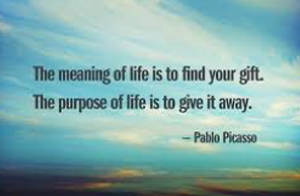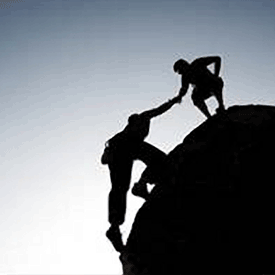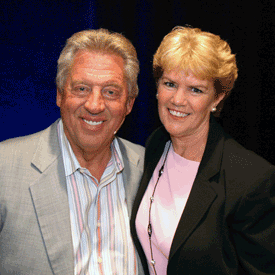
by admin | May 28, 2023 | Life Coaching, Parenting, Preschool Teacher Training, Professional Development Workshops
This is currently a very hot topic. With the incredible fast rise of availability of technology devices, in almost everyone’s hands, this question is on the minds of parents, teachers, psychologists, and scientists…could too much time spent be having a negative effect on my child or is it a necessary way to ‘keep up’ and be on par with what everyone else’s children are doing. I have had unsubstantiated opinions based on my common sense so I decided to research and see what studies and research have found.
Interestingly enough, in the early 1960’s, the television set was becoming popular and available to more and more families. At this time, the Federal Communications called the onset of TV as the beginning of a ‘vast wasteland’. Fast forward to today, screen time is not limited to the TV. It also includes Smart phones, tablets, and laptops. The internet and handheld devices especially, have opened the door of opportunity to apps, games, videos, advertisers and millions of dollars of profit. Can’t really blame these companies. The demand is being met by the desire to communicate 24/7, literally in the palm of your hand.
So with this huge fast progression, it is wise to weigh the benefits and the downside to the progress of technology, with an open mind. Without a doubt, how amazing is it to pick up a 3×5 inch box and talk to someone on the other side of the earth?? It is also very convenient to have access to unlimited information on any possible subject by simply typing GOGGLE or asking SIRI. Another rewarding feature is ‘face timing’ with family members. Without a doubt, we are able to stay connected in a way that was never know before. So what could possibly be the downside? If this was the extent of how technology is being used, there would not be a downside. Some not so desirable symptoms and behaviors have been witnessed by parents, teachers, and pediatricians that has led to the question as to how much screen time is too much.
The American Academy of Pediatrics has come up with recommendations as to how much time is safe for children to spend per day looking at a screen. Here are their daily recommendations:
Ages 0 to 18 months- NO screen time
Ages 18 months to 2 years- limited and only with adult guidance
Ages 2 to 5 years- 1 hour of only high quality programs intended to teach.
Ages 6 to teen years- maximum 2 hours
The American Academy of Pediatrics did not make these recommendations without extensive research. What was found in many children who exceeded these limits were quite a few adverse effects.
- Obesity
- Irregular sleep patterns
- Underdeveloped vocabulary
- Impaired academic performance
- Accepting violent behavior as the norm
- Limited creative play
- Limited social connection
- Anxiety and depression in teens
- Decreased confidence in teens.
These outcomes range from Infants to teenagers. From Dr. Jane Healy’s book, Different Learners, she emphatically states that screens have taken control of our young people’s minds. They become reactive vs reasoning beings. She states, “Four areas of concern relating to overuse of technology have emerged that particularly impact learning difficulties. They are attention, language development, “people” skills, and problem solving/imaginative thinking.” What IF this is true, even partially? Should we as parents be concerned? How about us as part of this society and the future of the next generation? Should we be concerned?
The answer is a resounding YES. It is important to understand that overuse leads to an over dependence that is more than a desire for ‘fun’. Instead there are changes that occur in the brain and especially in the brain of a young person whose brain is not fully developed. One that is easy to understand is the FACT that when a child spends more than 30 minutes per day on a screen device, this causes rapid activity of dopamine production that leads to the body constantly wanting more of that ‘feel good’ hormone. When stopped, causes a sudden drop off of dopamine that results in bad moods, agitation, anger, and tantrums. This same result is seen also in adults in several types of addictions. Dopamine production becomes dependent on the behavior that initially stimulated it. The healthy production becomes dependent on the stimulus that then becomes an addiction.
Technology, screens, Smartphone, and tablets are not going away. There are suggestions that we as parents, grandparents, teachers, or anyone else that has influence on young people can do. Not a parent? Share these ideas with someone that is. We are in this together.
- Place computers/devices in common areas of the home where use can be supervised.
- Install monitoring devices on the device child uses most. Do parents have the right to rob child’s privacy? Yes, until the child’s frontal cortex is fully developed and able to make decisions on their own. Unfortunately, science says that age is around 25.
- Limit use to 30-60 minutes daily during the week (over 30 minutes consistently is when addiction begins).
- Ban devices from bedroom. Allowing this open window to the internet is like dropping your child off downtown then picking them up in a few days and see what has happened.
- No electronic games on the same device they are using to read from. Too tempting for a child to go from reading to game playing.
- Secure wireless routers so child does not know the password and able to give to their friends.
- When finished use, must sign out.
- Smart phone are not for children or young teens.
- Walk your talk. Use same guidelines for own use as given to child. Set the example. If a child sees you reading a book, they are more likely to also read a book.
- Don’t get angry when child expresses discontent with these limits. Be calm but be a parent, not a friend. Child’s job to ask, your job to manage.
- Create and be consistent about Tech Free Zones. In addition to the bedroom, mentioned above, include also during meals, in restaurants, and even in the car, with the exception of long car rides. These times are for conversation and getting to know each other better. There are few uninterrupted opportunities in our busy, overscheduled world. The home is meant to be a safe haven where happy and sad experiences can be talked about. Have you ever had a child walk into you in a store because they were playing on a phone? How often have you observed a family with children as young as 1 year, with their focus completely on an ipad or with earbuds on, watching a movie? I will always go up to a table in a restaurant where the family is tech free talking to each other and congratulate them. They are very appreciative of the compliment. Keep in mind, the use of devices is a privilege not a right. In the home, only allowed when chores and homework is done. Set the rules and consistently stick to them.
A side note…my research found the following information: teenage girls and boys tend to express themselves differently. Boys will physically fight when mad. Girls get mean. A preteen and teenage girl has no reason to have a social media account. This is where most bullying is found among girls. Think twice about allowing this opportunity.
The good news is, there are rewarding activities that can be substituted for technology. Here are a few:
- Go for walks or to a playground.
- Board games
- Bake cookies for a shut in.
- Story telling CDs are valuable ways to increase reading comprehension and imagination.
In addition to substituting activities, it may help to know what several studies have linked the reason why video games have hooked so many young people, to the point of becoming an obsession. Rather than assuming kids are lazy and defiant, an article from Psychology Today written by Dr. Nir Eyal states that gaming satisfies 3 basic human needs…competence, autonomy, and relatedness. Competence being the need for growth, progression, achievement, and mastery, as found in a challenging video game. Autonomy being the need for freedom of control over the choice to call the shots in a game. Relatedness being the need to feel like they matter to others and others matter to them, being part of a gaming community. It has been suggested that game creators know this and design them is a way that satisfies these needs. Why do you think it has been said the Silicon Valley parents limit extensively their children using technology for entertainment? Of course, there is no way we can agree that video games are a good substitution for other ways to get these needs met. No matter how well a game is designed, it can’t come close to the deep satisfaction that real life and real human connection can provide. No game can give a child the feeling of competence that comes from accomplishing a difficult task on their own. No social media site can give a child a sense of relatedness, safety, and warmth that comes from an adult that loves them unconditionally and takes the time to tell them so. When kids see their parents are not only trying to stop their fun but are instead helping them keep things in the right perspective and in the right proportion, they become allies rather than enemies.
It is time to become intentional and do the right thing for our children. A colleague of mine, Victoria Proody, Occupational Therapist for children, whom I admire very much for the work she is doing to educate parents as to the damage that can be done, not regulating children’s screen time. She did an experiment with her 10 year old son. There was no technology Monday through Friday and only 1 hour a day on weekends. Initially he resisted. He complained, he whined, he stomped around saying how bored he was. After the first week, he began to look for other things to do with his time. His mom suggested he cook dinner for the family, one night. Little had he known, he began to love cooking, finding new recipes, helping his mom make the grocery list of needed ingredients. Victoria interviewed him after several weeks and he actually thanked his mom for taking away technology because he found something else he loved more. A recent update about her son…he is starting a cooking class for his classmates. That emerged from his mother enforcing his use of technology.
It will not be easy initially. Do what these guideline suggest. Don’t give up and give in. I’m sure, no one ever told you being a parent was going to be easy. You will be glad when you know you are providing the guidance your child needs and the reward as you watch them grow and expand in new ways!
Contact me to receive your FREE EQ Assessment.

by admin | May 2, 2023 | Parenting
This may sound like an oversimplification, but the family that isn’t “working” is the family that isn’t playing together. Playing together is an essential trait of happy, healthy families. Certainly our children need to do their chores, and of course they need discipline with consistency, but what they also need desperately from their parents is a rousing game of hide-and-seek or a monthly Ping-Pong tournament.
A great thing happens to families when they play together: They begin to talk and laugh and lighten up. Family memories are built, inside jokes are shared, and serious moments of intimacy are communicated. Families need special times together to build lifelong memories and to play together.
As most experts will tell you, a family that plays together stays together. But I would add that a family that plays together will also be much more happy and healthy. For many families, play is the missing ingredient that glues the family together. Play can even open closed spirits and heal broken marriages.
We know instinctively that play produces family togetherness and support. We know that when we play together, we have a deeper sense of belonging and community in the family. Parents must proactively work at making a sense of belonging and community one of their key goals for family togetherness.
Playing together as a family may open up the communication lines better than anything else you try, so now is the time to be proactive and create those family fun days and events that provide the catalyst for more effective communication. Do whatever it takes to keep the lines open, even if it means picking up a basketball or going to the park on a regular basis. Playing together and having a good time just may be the safety net you need to make a difference in your child’s life.
Todd Dean is one of my heroes. I’ve known him much of my adult life. He is a talented person with an M.B.A. from Stanford University. At the university, Todd was a gymnast. When I first met him, he was teaching students from my youth group to do a standing backflip. All I could do was think about liability, and yet the kids loved watching him do his incredible flips. He invited me to try a backflip. I made a fool of myself, but he still encouraged me.
Todd married Charlotte. They had two beautiful children, and he had a very high-paying job. Todd’s career was going through the roof. Then tragedy struck: Charlotte died of a brain tumor. Before Charlotte died, Todd had told me he wanted to coach his children’s little league and soccer teams. Because Todd’s career would soon include travel, he had to make some difficult decisions about his career. Todd was making good money, but it wasn’t as important as playing catch with his son or rollerblading with his daughter.
Todd made the decision to quit his high-paying job and become a professor, so he could play more with his kids and coach those teams. His annual salary was cut to what was once his annual expense account. His lifestyle had to change. He doesn’t live in as large a house as he once did, and his car isn’t the same model as some of his Stanford M.B.A. friends; but he is happily coaching his children’s teams. He is now married to a lovely woman named Becky who suffered a similar loss. They have four happy, content, and well-adjusted children who play and interact daily with their dad and mom–who have sacrificed financially to help their family thrive. The benefits of playing together are far more valuable than a big paycheck.
These days, we all live with stresses of a fast-paced life. Playing together is one area of our busy lives that we can pretty easily choose to cut out – in order to make the other areas of our lives easier to manage. Yet, I challenge you: Don’t cut back on playing together. This is one simple area of life that can yield incredible benefits for you and your family.
[sgmb id=”1″]

by admin | Apr 28, 2023 | Life Coaching, Parenting
I let my joy get sucked away—then I saw despair in my child’s eyes.
By Rachel Macy Stafford
In an especially chaotic rush out the door to go on a family vacation, I sat in the passenger seat fuming. Mad because I didn’t have time to put the dishes in the dishwasher. Mad because we were late getting on the road. Mad because the garage door was acting up. I’m talking trivial, insignificant, minor inconveniences here, but that was the state of a distracted woman who could no longer see the blessings, only the inconveniences, of her life.
Before we were about to pull out of the driveway, my husband looked at me as if someone he loved very much had died. In a barely audible whisper he said, “You’re never happy anymore.”
I wanted to defend.
I wanted to excuse.
I wanted to deny.
But I couldn’t.
Because I knew he was right.
Where had that happy woman gone? The one who smiled at people she passed on the street just because. The one whose friends often spoke of her positive outlook on life. The one who felt happy simply because she heard her favorite song or had a pack of strawberry Twizzlers in her purse. The one who could laugh off mistakes because mistakes happen, and they are certainly not the end of the world.
Where had she gone?
And that’s when I glanced to the backseat to see if my children, then ages six and three, had heard my husband’s words. Staring back at me was my older daughter picking her lip with worry the size of a small boulder weighing down her small shoulders.
As she pinched that tiny piece of fragile skin on her upper lip with wide eyes, I could practically read her mind:
Mom’s mad.
Mom’s tired.
Mom’s stressed.
But there was more. I could practically hear how a young child would interpret her mother’s unhappiness.
Mom’s mad at me.
Mom’s tired because of me.
Mom’s stressed because of something I did.
That’s when an even more powerful question hit me.
Where had my happy little girl gone? The one who woke up with the most gorgeous bedhead and good morning smile. The one who beamed at the words “sprinkler,” “cotton candy,” and “pet store.” The one who laughed so hard tears came to her eyes. The one who licked beaters with sheer pleasure and danced happily to any song with a beat.
Where had she gone?
I knew.
Because my happiness was based on external measures—on tasks being completed, plans running accordingly, goals being met, hairs being in place—I was continually disappointed … upset … impatient … and stressed. In the process of making my own life miserable, I’d funneled my unhappiness straight into my daughter’s once joyful heart and spirit. Her pain was a direct reflection of the expression I wore on my face.
I desperately wanted to bring a smile back to my daughter’s face. I knew I must bring it back to my own. I began praying for small steps I could take to become a more positive, present, and peace-filled person. On brightly colored sticky notes, I posted daily goals and positive mantras that came to me during morning prayer time. Especially prominent on my mirrors and cabinets were these two go-to phrases: “Only Love Today” and “See Flowers Not Weeds.”
I used the phrase Only Love Today to silence my inner bully. Whenever a critical thought would come to my mind or my mouth, I’d cut it off with Only Love Today. I used See Flowers Not Weeds as a pathway to gratitude, to see what was good in situations and people.
As Only Love Today and See Flowers Not Weeds became a daily practice, I felt a profound transformation occurring in my heart and home. No longer were my goals exclusively items that could be measured or checked off—they consisted of immeasurable items like listening, laughing, dreaming, playing, connecting, and loving. With a more meaningful daily goal, I was able to see the blessings in my imperfect self and in my imperfect life. My eager-to-please, helpful older child looked different too. I saw her for who she was, not an annoyance or a bother, but a loving child with clever thoughts and ideas. For once, I could see all the things she was capable of doing—not perfectly, but good enough for today. The tightness in my face relaxed and the smiles came more easily for both of us.
One morning, I looked out the kitchen window to see her making a little garden right there in the middle of the yard. I watched as she tended to her miniature plot. Her joyful smile made me take pause. Clearly, she was at peace tending to her garden. I took a picture and sent it to my parents. Nothing could have prepared me for the response I received. My parents wrote:
“Thank for this precious picture of our beautiful granddaughter. Over the last two years, we have seen a tremendous change in her. We no longer see a scared look in her eyes; she is less fearful about you being upset or impatient with her. She is much happier and more relaxed. She is thriving and growing into a content, creative, and nurturing person. We know for a fact the changes we see in her coincide with the changes we have also seen in you.”
I covered my mouth to muffle the sobs.
When I was struggling to breathe beneath the weight of perfection, distraction, and self-induced pressure, my child was too.
My daughter had absorbed my tension.
She had absorbed my frustration.
She had absorbed my anxiety.
She had absorbed my unhappiness.
And as my negative emotions were being filtered down to her, they impacted her ability to grow, thrive, and blossom.
If I didn’t know it before, I know it now:
Our children are our garden. They absorb our stress, just as they absorb our peace. They absorb our negativity just as they absorb our joy. And we have the power to control what they absorb, but first, we must tend to ourselves.
It might sound like this:
Dear one, you have feelings. They are worth listening to and acknowledging.
You have limits. They are necessary to keep in place as a means of valuing your time and honoring your health.
You have dreams. You are worthy of time to pursue what makes your heart come alive.
You have needs. You deserve affection, rest, sustenance, and grace.
Perhaps you forgot that it is necessary to look after YOU. It’s okay. I forget too. But we still have today. Thank God, we still have today.
Today let’s tend to ourselves as we do our loved ones. Perhaps we can make it a habit. We’ll never know how much we can grow and flourish until we take time to tend to what is most precious.
***
This is a small sample of what you will find in Rachel Macy Stafford’s latest bestseller,Only Love Today. Rachel is the New York Times bestselling author of Hands FreeMama and Hands Free Life, as well as a certified special education teacher andinspiring speaker. Millions find solace and direction in her weekly blog postsat handsfreemama.com and supportive Facebook community, The Hands FreeRevolution. Rachel’s latest work of heart, ONLY LOVE TODAY, is soulful, bite–sizeencouragement for busy individuals yearning to anchor themselves in love despiteeveryday distractions, pressures, and discord. “Only Love Today” began as a mantrato overcome her inner bully, but it is now the practice of Rachel Macy Stafford’s life. It can be a practice for all of us with Only Love Today. This National bestseller is available at Target, Barnes & Noble, LifeWay, and Amazon.

by admin | Mar 11, 2023 | Life Coaching, Parenting
I have sat back for the last few days reading the articles and posts in response to the horrendous shooting in Florida. I get that we as a people feel compelled to do something to fix the problem right away. Unfortunately, the cause as to how someone could have so much pent up emotion that they could be capable of randomly taking innocent lives, is extremely complex and has been formulating for a long time. Understanding some of the possible causes of this never seen before level of violence is a starting place. Taking that info and working backwards towards a solution, to me, makes the most sense.
Here is my opinion of what over time has added so much violence and isolation in our world:
• Violent, unsupervised video games that results in desensitizing the emotion of killing for sport and points in a game, especially during the years when the brain is being formed. Psychology Today article, ‘Yes, Violent Video Games Do Cause Aggression’ states several studies showing this to be true. In addition, inappropriate watching of not only violence, but other high level emotions on TV and in movies. All without adult conversing as to what is being portrayed as right and wrong. CONNECTION OR ISOLATION?
• Overstressed parents under pressure to work long hours to make ends meet and the nuclear family being completely disconnected. How often do families eat together? How often is the cell phone or other device the main companion? How many families talk together about joys and challenges? What family traditions are being lived and passed on? Is the family the anchor to a person’s life, a safe haven, a place where all foundation is being created? CONNECTION OR ISOLATION?
• Is there a reason that the common profile of these killers is a Caucasian male? How have the boys in our society been conditioned to handle emotion? By repressing how they feel…’don’t cry, you sound like a girl’. The New York Times ran an article, ‘The Boys Are Not All Right’ by Michael Black (Feb 2018) that points out several powerful points about society’s expectations of boys and how this leads to confused and isolated boys. Our girls have been elevated to be achievers, motivated, expressive. We have not changed as to how our boys, generally speaking, have evolved beyond archaic views of what a boy should feel and act like.
These are just 3 components I feel strongly about. However, here is the concept I feel is worth considering:
• Each person taking on the awareness and responsibility to connect in some way with those people in each of our worlds that are lonely, isolated, disconnected people. I keep hearing, “WHAT ARE THEY GOING TO DO?” Who is they? Everyone else but themselves? Is it the lawmakers? Is it about gun control? Yes, I agree, certain types of guns do not serve a purpose in society and yes, someone with a violent history of mental illness should not own a gun (another complex issue).
Is it the teacher’s responsibility? NO, teachers are expected to do way too much without being expected to learn how to fire a gun and having that responsibility! Especially when it could possibly be one of her/his previous students. I believe we have a powerful source of influence in our classrooms, actually beginning in our preschools, to develop a culture of care by teaching the components of emotional intelligence.
According to Daniel Goleman, Emotional Intelligence, Why It Can Matter More Than IQ, emotional intelligence CAN be raised in children and adults. Empathy CAN be taught. Social skills CAN be taught. Identifying and managing and expressing feelings in appropriate ways CAN be taught.
I firmly believe this is the root solution. Instead of the discussion of ‘emergency school board meetings open to the public having an agenda of deciding do we put police officers at every entrance of our school and do we train every teacher to fire a gun so she can be armed if needed or do we have routine drills what the students will do if a killer is in their school killing people?’ NO!
Has the suggestion been to shift our curriculum and priorities in our education system?
What if from the first days a child is in any level of school, an emphasis is on creating high emotional intelligence in all students. What if we added more not less recess time to develop social skills and a vent for pent up energy?
What if we actually taught teachers instead how to incorporate mindfulness such as meditation and breathing activities? Every one of those killers attended some sort of formal education. Just ‘what if’ someone had taught them to express anger?
‘What if’ someone, both the teachers and their classmates, had shown to them love, care, and empathy that maybe they did not get at home. Many of the next serial killers and mass killers may be sitting in a classroom right this minute.
‘What if’ something could be done with shifting focus to a culture of caring and helping the troubled by shifting the expectations of every single person to feel for others, take the time to include, and be the person to everyone we would want others to be for us? Instead of fighting violence with fear and more violence, let’s become a society that connects and cares more about others than about ourselves.
What a wonderful world that could be!

by admin | Feb 26, 2023 | Life Coaching, Parenting, Preschool Teacher Training
I led an 8 week Mastermind using Viktor Frankl’s, Man’s Search for Meaning, over 3 years ago. I can honestly say, not a week goes by that I do not recall some of the profound lessons that came from that study. I find the beginning of the New Year, an appropriate time to share a few of those lessons.
I spend time at the end of the year to go back over my last year’s calendar. On a sheet of paper with two columns I list-
- Celebrations…specific ways I grew and improved and new accomplishments, areas in which I will continue to learn and move forward and new learning/methods/goals I will find a way to accomplish.
- What I will stop doing and what will replace that. This is my favorite time of year. I love pausing, reflecting, and setting up plans for the New Year. Along with my two column chart, I include the ways I made a difference in the world, whether it be one person at a time or larger groups. That to me is the most important celebration.
While leading both individual and group coaching sessions, when asked, “What is your purpose in life?” the response is often “…to make a difference in people’s lives.” I do not stop there. I probe for them to go deeper. In what way will you make a difference? What will that look like? Will it be a specific profession? Will it be a role as a mother/ father/ grandparent? Will it be your core values you exhibit that will impact others by your example? What are those core values? Is this the basis for finding meaning in life?
The paradoxical secret to finding meaning may be to not look for it. The most satisfying forms of meaning may emerge not when we pursue them directly, but when we instead seek encouraging others, love, justice, or, as Frankl writes, “a cause greater than oneself.” The secret to a meaningful life may be to remind ourselves every day to do the right thing, love fully, pursue risky experiences, and undertake important tasks, not because we are trying to increase our sense of meaning in life, but because these pursuits are good in themselves.
Let me explain further. We are each born with unique skills, talents, traits. Each of these has been given in order to fulfill our purpose for being on Earth. Finding our own paths in which we are using what we have been given, in order to serve the world and others. This approach of doing what we do because it is the right thing, because it is what we believe, or it aligns with our core values, is a difference approach than searching for meaning.
I believe the real opportunity to live a life of meaning comes when we are faced with circumstances we do not desire. This is part of life. Brian Ridgway says, “Unless we decide what we don’t want, we can’t know what we do want.” So when faced with injustice, or abuse, or pain, insult, or loss of love, rejection…all the human conditions common to us all, what choices are there for how to respond. Here are a few suggestions:
- Pause, take 3-5 deep breaths. Let the logical thinking part of your brain, frontal cortex, catch up with the hijacked amygdala, the emotion center. Also, deep slow controlled breathing sends a message to the brain that calms and controls the nervous system.
- What is the right thing to do in the moment? Put it in perspective. It’s been said to ask yourself, “Will what is happening right now matter in 2, in 5, in 10 years?” Probably best to walk away.
- When there is a circumstance where someone you care about has hurt your feelings or done something that makes you mad, best to wait until emotion has subsided. However, very important that you let the person know how you felt. So often we hold our emotions in, never express them, and expect the other person to know, when nothing has been said. It is not fair to expect someone to read your mind when it hasn’t been expressed. Best to talk about it and clear the air. The same is true when in the work place, misunderstandings emerge. Best to talk about them instead of repressing thoughts and feeling.
- Be true to yourself. Know what is important to you and what a priority is for you. Is your time spent in alignment with what you say matters most to you? This is where actions speak louder than words. Walk the talk. This is when the path you take is aligned with life giving back meaning.
Consistently speak up and be able to say no if asked to do something that is not a priority for you. This goes the other way too. Is time with family a priority? Is health a priority? Is friendship a priority? If you find yourself saying, “I’m too busy at night to read to my kids.” Or “I don’t have time to go to the gym.” Or “I have to work late. I don’t have time to meet up with my friends.” What you are saying when you don’t make time, is it is not a priority! Be clear what matters most and be aware how much time you make for that.
Viktor Frankl says that between stimulus and response, there is space. In that space is our power to choose our response. In that response lies our growth and our freedom. Frankl believed that within every circumstance, life is still expecting something: something in the present and something in the future. If we see life as something greater than our self, does it help to think, what is life expecting of me now? Is it to be angry, unforgiving, spiteful, jealous…all of those choices that do not serve others or our self? Or are we given circumstances in order to learn something, become stronger, or to be a model, an example as to how a higher power is more in control than my weaker human tendencies.
As a Grandparent, I find a part of the purpose, the meaning I find in life, is being a beacon for those little new beings. What do I want them to see in my reaction when I am disrespected in front of them? Will they see unconditional love, no matter whether it is earned or not. Will they see me doing what is right, no matter what? Will they witness serving others for no expectation of gain? Will they see me as someone that listens and shows love with time?
Living my life now as I want this chapter in my book of life to be written, is what gives my life meaning for me. I do not have to search. Meaning surrounds me in all I have to be grateful for. I need to live life as the best person, using, not wasting, my God given abilities. When I am finished with this life, I want to know that I lived life to the fullest, serving others, and becoming the very best I can become.
I love the quote, “I want to die empty.” Also, Wayne Dyer says, “Do not die with the song still inside you.” These thoughts and intentions is what gives my life meaning. How about you?

by admin | Nov 2, 2022 | Parenting
Seven Reasons Why It’s Important
1) Keeps Kids Out of Trouble
Kids who live in families that eat dinner together regularly are less likely to be involved in at risk behaviors. According to the 2000 study done by the National Center on Addiction and Substance Abuse at Columbia University (CASA), children who don’t eat dinner with their families are 61 percent more likely to use alcohol, tobacco, or illegal drugs. By contrast, children who eat dinner with their families every night of the week are 20 percent less likely to drink, smoke, or use illegal drugs.
2) It’s Bonding Time
Families who eat dinner together regularly are more likely to have stronger, happier family relationships. As families struggle to find amounts of quantity and quality time together, family dinnertime provides the opportunity for both. When families hang out together and communicate, they grow strong and healthy.
3) Offers Stability
Families who eat dinner regularly develop a stronger family identity. Eating together serves to build a family identity. Additionally, this family “routine” provides a sense of stability and security that provides kids with a positive environment where they can grow into healthy adults.
4) Time for Family Updates
Families who eat dinner together regularly can keep in touch with each others’ lives. Everyone – kids and parents alike – can keep up-to-date during your family dinnertime on what is going on with school, jobs, family life, and friends.
5) Chance to Resolve Conflicts
A regular family dinnertime provides natural opportunities for planning and problem solving. Scheduling family meeting times to discuss planning, needs and problem solving can be difficult. A regular family mealtime can offer a natural solution to the challenge.
6) Educates Your Kids
Eating dinner regularly fosters learning. When families who eat dinner together engage in a variety of conversation topics, learning is encouraged. Kids who are exposed to regular family discussion times learn a broader vocabulary.
7) Healthy for the Whole Family
Kids are likely to receive better nutrition when eating dinner regularly with their families. A simple, but true rule applies: when kids eat with their families, they eat better. A family dinnertime means kids are more likely to eat a nutritionally balanced meal, lower in sugar and fat content, than if they prepare or purchase meals on their own.







 [/custom_frame_left]
[/custom_frame_left] [/custom_frame_left]
[/custom_frame_left]
Recent Comments